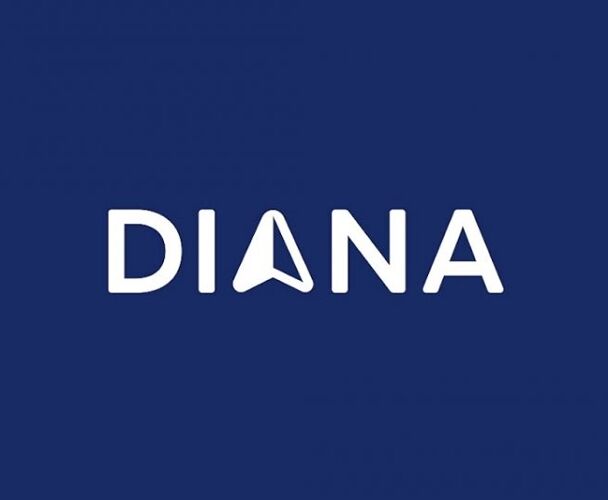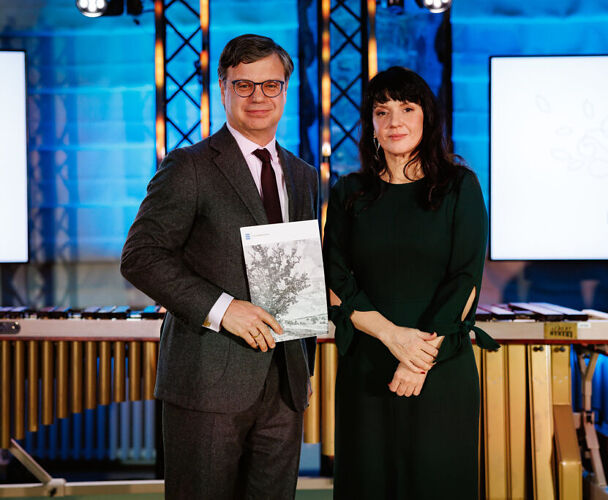EUROPEAN UNION
The impact of Schrems II on data transfers from the EU to the USA
On 26 July 2020, the Court of Justice of the European Union in C-311/18 Data Protection Commissioner v. Facebook Ireland Ltd and Maximillian Schrems (Schrems II):
invalidated the EU-US Privacy Shield, the popular safeguard for data transfers from the EU to the USA (so that all such data transfers must stop unless any other safeguard under Chapter V of the GDPR applies), and
examined the validity of the Standard Contractual Clauses (SCCs) as a sufficient safeguard for transfers of personal data from the EU to the USA.
The decision allows a legal entity exporting personal data to rely on the SCCs but the exporter must check ‒ prior to a data transfer based on the SCCs ‒ whether appropriate safeguards (incl. adequate protection under the destination country’s laws) can be assured by the recipient of the data outside the EU. If it appears that appropriate safeguards cannot be assured, the exporter must suspend or end transfers of personal data.
As a result, all legal entities using any service providers located in the USA, especially for software, cloud or for any other solutions offered over the Internet, should review their contractual set-up. Further guidance on data transfers can be read here in Estonian.
New EU Platform-to-Business Regulation now in force
As of 12 July 2020, the EU’s Platform-to-Business Regulation 2019/1150 (P2B Regulation) applies to promote fairness and transparency for business users of online intermediation services. The P2B Regulation foresees a set of obligatory rules covering contracts (terms and conditions) between business users and online intermediation service providers.
Under the P2B Regulation online intermediation service providers are information society service providers that facilitate direct transactions between business users and consumers, i.e., they enable business users to reach consumers located within the EU (e.g., e-commerce platforms and marketplaces, price comparison websites, social media websites and app stores for business, search engines). ‘Business user’ means any natural person acting in a commercial or profession capacity who, or any legal person which, through online intermediation services offers goods or services to consumers.
As the P2B Regulation is already in force, businesses should take steps to achieve compliance to avoid unnecessary disputes. An overview of the most important points prepared by COBALT can be read here in Estonian.
Impact of Brexit on EU Trademarks and Registered Community Designs
Although the UK left the EU on 1 February 2020, EU legislation remains applicable to ‒ and in the UK ‒ until 31 December 2020. As of the end of this transition period, EU Trademarks (EUTMs) and Registered Community Designs (RCDs) will no longer be protected in the UK. However, continuity of protection of registered EUTMs and RCDs will automatically be granted free of charge by the UK as of the end of the transition period, in the form of an additional comparable UK trademark or design. This in turn means that the owners of such registered trademarks and designs will have to look after two separate registrations. A request for renewal of rights must be made separately with the EU and the UK intellectual property offices. Failure to do so will lead to expiry of rights.
As a result, all owners of EUTMs who wish to continue legal protection of their trademarks in the UK should not forget to look after their new UK registrations.
ESTONIA
Estonian Supreme Court decision provides practical tips to online platforms to prove conclusion of standard contracts (terms and conditions) with consumers
On 25 May 2020 the Supreme Court of Estonia rendered a decision with practical tips to online platform owners to avoid or mitigate disputes related to conclusion of standard terms. The Court clarified that online platform owners can prove conclusion of standard contracts (terms and conditions) with consumers by: (i) keeping logs that prove which version of the standard contract (terms and conditions) was displayed to the consumer with a clear reference to the standard contract, (ii) showing that the consumer could have not continued the use of functions under the standard contract without prior affirmative action (e.g., by clicking an “Accept” button or ticking a box.)
Estonian Supreme Court: loss of profit must be compensated if damage has been caused via securing an unfounded action
In a patent dispute judgment of 30 April 2020, the Estonian Supreme Court changed its current position in regard to compensation for damage caused by securing an action. Until this judgment, the understanding in case law was that compensation for damage caused by securing an unfounded action covers only direct material damage. However, loss of profit claims were dismissed.
The claimant had suffered damage due to being unable to sell its medicinal product and earn revenue during the period the unfounded provisional measure was in place. The Estonian Supreme Court re-evaluated the established positions and held that as the type of damage to be compensated is not limited by applicable legislation, compensation for loss of profit must also be compensated.
Although the issue of claiming loss of profit arose in connection with provisional measures taken in a patent dispute, this interpretation will not only be applied in connection with civil matters related to intellectual property, but also to all other types of civil disputes.
Estonian Government approves long-awaited draft act updating the private copying levy system
The Estonian Copyright Act establishes a private copying levy system that should ensure fair remuneration for the authors, performers and producers of phonograms for the copying of their audiovisual works and sound recordings of those works for private use without authorization from the right holder. Remuneration is currently calculated as a percentage – 3% on recording devices and 8% on storage media. However, the list of recording devices and storage media has been unchanged since 2006. As a result, remuneration need still only be paid for VHS and audio cassettes, minidiscs and CDs. But because this list is outdated, remuneration to be distributed has been non-existent since 2014.
The last decade has seen several court cases against the Estonian Government, while numerous discussions have focused on the need to update the system. On 3 September 2020 the Estonian Government finally approved long-awaited amendments to the private copying levy system. The percentage remuneration is replaced by a fee of €/per piece and ranges from 0.03€ for optical storage devices up to 3€ for audio and video players and external hard drives. The list of devices and storage media is also updated and now includes laptops and tablets, smart phones, set-top boxes and USB sticks. Producers of first fixations of films are also added to the circle of those among whom remuneration is distributed. The new private copying levy system can easily be adjusted to changes in consumer behaviour as well as changes in technological possibilities.
LATVIA
Latvia transposes Audiovisual Media Services Directive by amending the Electronic Mass Media Law
Following transposition of the Audiovisual Media Services Directive (AVMSD), a new law “Amendments to the Electronic Mass Media Law” was drafted by the Ministry of Culture. The draft, approved at the second reading by the Parliament on 17 September 2020, is expected to be adopted at the third and final reading before the end of 2020.
The draft law transposes the AVMSD in its entirety, while providing broader competency to the authority to restrict broadcasting of electronic media audiovisual programmes or services on demand under the jurisdiction of another Member State of the European Union or a European Economic Area country which is wholly or mainly directed to the territory of Latvia. The draft law:
- introduces new definitions for audio and audiovisual mass medium services, audio and audiovisual commercial communications, self-promotion, and sponsorship;
- requires an electronic mass medium providing on-demand audiovisual services to:
-
- include at least 30% of European audiovisual works in their catalogue and
- promote their accessibility and visibility, e.g. via labelling, a separate section or search tools;
-
- sets some limitation on applicability of the quota;
- provides that guidelines and criteria for calculation of ‘European work’ will be provided by the National Electronic Mass Media Council.
Currently there is no plan to implement financing quotas in Latvia.
Consumer Rights Protection Centre imposes record fine for unfair commercial practices online
On 7 August 2020, Latvia’s Consumer Rights Protection Centre (CRPC) imposed a record fine of 90 000 EUR for unfair commercial practices. The perpetrator had engaged in widespread and misleading advertising within various websites targeting consumers from all over Europe, including Austria, the Netherlands, Poland, Germany and elsewhere.
These unlawful activities were carried out over a long period misleading consumers about the characteristics of the products offered by the perpetrator, including providing unauthorised health claims about food supplements, the terms of the distance contract and the perpetrator’s identity as seller. In addition, the perpetrator had carried out aggressive commercial practices by delivering unsolicited products to consumers. As a result, the CRPC imposed a fine, as well as ordering the perpetrator to put an immediate end to these unfair commercial practices.
Latvian Supreme Court decides unique copyright & competition dispute over TV formats
On 30 June 2020, the Latvian Supreme Court upheld a decision which had dismissed a claim by “All Media Latvia” SIA (previously Latvijas Neatkarīgā Televīzija) against Latvian Television (the public broadcaster). Latvijas Neatkarīgā Televīzija claimed that Latvian Television’s morning news show “Rīta Panorāma” imitates the format of its morning news show “900 sekundes”, thus violating the Copyright Law and the Competition Law.
This is the first case in Latvia in which the Supreme Court has discussed a TV format as belonging to its creator. The Court explained that, in principle, a TV format may be protected, but no one can monopolize an entire class of television programmes (genre). Having recognised that prohibition of unfair competition is actionable in a dispute over a TV format, the court listed the criteria for an infringement and agreed that in this particular case they had not been fulfilled. COBALT successfully represented the public broadcaster in this case.
Invalidation of trademarks registered by alleged trademark “troll” (Grigorius Holdings)
The Industrial Property Appeal Board of the Latvian Patent Office (Board of Appeal) and courts of general jurisdiction invalidated several trademarks registered by SIA Grigorius Holdings, an alleged trademark troll.
SIA Grigorius Holdings registered a total of 1123 trademarks with the Latvian Patent Office over a period of 6 years. Many of the trademarks in question are identical or similar to trademarks of other rights holders that are well-known or have a good reputation. In early 2020, the Board of Appeal had received 187 objections against trademark registrations by SIA Grigorius Holdings.
COBALT provided legal assistance to clients in several trademark disputes with SIA Grigorius Holdings, raising oppositions on diverse grounds, in order to apply for a declaration of invalidity of the contested trademarks. A recent judgment of the Riga City Vidzeme District Court invalidated registration of the trademark “BAIDU” by SIA Grigorius Holdings on the grounds that the trademark application was submitted with manifestly malicious intent.
Similarly, the trademark “MULE” by SIA Grigorius Holdings was also invalidated by the Board of Appeal. The Board upheld the opposition and concluded that the right holder owned an identical trademark registered for identical and similar goods, that the right holder’s trademark had a good reputation and that the contested trademark had been presented for registration in bad faith.
LITHUANIA
Lithuanian Guidelines for Influencers’ Advertising on Social Media
The Lithuanian State Consumer Rights Protection Authority has adopted Guidelines for Marking of Advertising in Social Media. The aim of the Guidelines is to ensure that advertising on social networks is clearly recognizable to consumers and that advertisers disclose the true purpose of the published content in a fair and responsible manner. The Guidelines provide different recommendations for advertising on social networks such as Facebook, Instagram, and YouTube. Additionally, recommendations are provided for proper labelling of limited-time advertisements (i.e. stories).
Under the Guidelines, advertisements intended for Lithuanian and foreign audiences should be marked differently; a post must be marked as an advertisement every time a product or service is mentioned. An advertisement published in Lithuanian or for a Lithuanian audience must be marked #Reklama and # Remiama/Sponsored. An advertisement published only in English and only to a foreign audience must be marked #Ad and #Sponsored.
The Guidelines also define which social media posts should be considered as advertising and provide recommendations to influencers and to entities that use the services of influencers.
Data protection
The Lithuanian State Data Protection Inspectorate (Inspectorate) has amended the list of planned inspections for 2020 by removing all financial institutions from it. This decision was made because public consultations regarding the relationship between the GDPR and PSD2 (Payment Services Directive 2) are not yet finished by the EDPB (European Data Protection Board). The plan is that financial institutions will be inspected in 2021.
On 20 July 2020 the Lithuanian State Enterprise Centre of Registers (“Registrų centras”) experienced a major data security incident due to heavy rainfall which caused flooding in the server room. The Inspectorate has announced that a formal investigation regarding this incident is not yet under way. However, it is closely examining a data breach report provided by “Registrų centras” and will make a final decision in the near future.
BELARUS
Belarus joins the WIPO-administered Marrakesh Treaty
On July 22, 2020 the Belarusian representative met with the Director General of WIPO and handed over the instrument of Belarus’s accession to the Marrakesh Treaty, which aims to expand access to literary and artistic works for the blind, visually impaired and those with other disabilities by creating conditions for all contracting parties for the reproduction and distribution of works in accessible format.
Amendments to Belarusian Copyright Law now in force
On May 27, 2020 amendments to the Law on Copyright and Related rights entered into force. Key changes:
- the concept and content of a licence agreement are specified;
- the new concept of an “open licence” is introduced;
- the minimum compensation for exclusive rights infringement is reduced from some € 90 to € 9.
Unified trademark registration within EAEU
On February 3, 2020 Belarus as an EAEU member signed the Agreement on Trademarks, Service Marks and Appellations of Origin. The Agreement will enable registration of trademarks, service marks and appellations of origin simultaneously within the territories of the EAEU by filing a single application in electronic form through the unified portal of the EAEU (not yet created) or in the form of a paper document. The effective date is not yet available.





